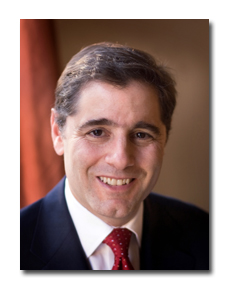Genachowski Addresses the Troops
WASHINGTON: Julius Genachowski took the reins of the Federal Communications Commission this week. Finally. “Some said this day would never come,” he said in his inaugural staff scrum, where he gave a shout-out to the vassals who do the real work of the agency. He should have a clue, having served as counsel for two former chairmans in the 1990s. Still, the man isn’t an agency field engineer standing before the general manager of a TV station that disappeared from a few thousand screens after the DTV transition. Genachowski took note.
“As many of you know, my confirmation hearing was on June 16th,” he said. “When the hearing was scheduled, my first thought was relief that a date had finally been set. My second was, ‘Hey, that’s only four days after the DTV transition.’ I could have faced tough questions about the agency’s handling of this enormous change in broadcasting. But that didn’t happen--and that is because you did a great job with a difficult hand.”
But wait, there’s more, he said. The DTV transition work is not yet in the can, and with that, Genachowski launched into his piece de resistance, the miracle that is broadband. The new chairman invoked the image of a wee business in Gettysburg, Pa., being able to compete with the big boys in Pittsburgh, “or even Johannesburg,” wherever that came from.
Genachowski said the agency’s job was to “pursue this vision of a more connected America.” He also tossed off, “seizing the opportunity for the United States to lead the world in mobile communications.” The effort, he said, would be “fair… open and transparent… fact-based and data-driven,” and would start within the agency. New media and technology will be employed to “green” the FCC and improve operations, starting with the Web site. FCC.gov, once the golden child of government agency Web sites, it’s now an Etch A Sketch versus a Garmin GDU 375. Reorganizing an online data base the size of the FCC’s won’t be an easy task, he conceded.
“It will take hard, often unglamorous work by all of us,” he said, following up with the classic personal bootstrap tale.
“We all have our own stories, our own personal reasons for choosing public service. For me, it starts with my parents, immigrants, from whom I learned the meaning of the American Dream. And from whom I learned another powerful lesson,” he said. “Some of you may have heard me tell the story about the time I was in high school and my dad took me into the dusty stacks of the MIT library, and showed me engineering plans he had drafted as a graduate student. They were for a device designed to someday help blind people ‘read’ words on paper by translating text into physical signals.
“The formulas and drawings didn’t make much sense to me, but the core lesson has remained with me: communications technology has the power to transform lives for the better.”
In conclusion, he said, “Let’s get to work.”
Deborah D. McAdams

The professional video industry's #1 source for news, trends and product and tech information. Sign up below.
